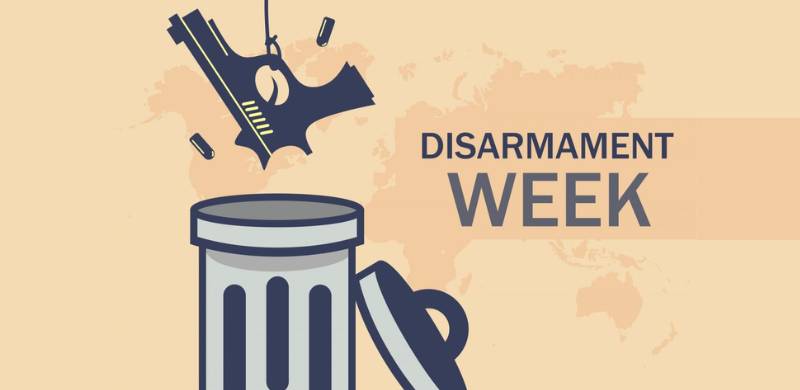
Every year beginning on October 24, the United Nation's Disarmament Week highlights the need for countries to consider disarmament and arms control, and if anything, current geopolitical events indicate that this is more important than ever now.
A recent thread by the Islamabad Policy Research Institute (IPRI) explains why countries must work together towards disarmament instead of taking up more arms.
According to the thread, heightened tensions and conflicts are best resolved through serious political dialogue and negotiations, and not by increasing arms and ammunition. "Disarmament and arms control measures help ensure international and human security in the 21st Century, and therefore must be an integral part of a credible and effective security system."
https://twitter.com/IPRI_Pak/status/1585516412679888896
According to the thread, the biggest shift in recent years has been the rise of 'humanitarian disarmament', which has become an effective and established way of dealing with the negative effects of arms. This approach to disarmament focuses on preventing human suffering and environmental harm, as opposed to advancing national security.
Five international treaties on the matter were signed as a result of the success of humanitarian disarmament, including the Arms Trade Treaty, Convention of Cluster Munitions and the Mine Ban Treaty.
https://twitter.com/IPRI_Pak/status/1585516446960029696
The thread mentioned that Pakistan is a firm proponent of disarmament, and has always advocated for the need for deliberations and negotiations. Pakistan is currently a signatory to seven disarmament treaties, including, the 1925 Geneva Protocol, 1993 Chemical Weapons Convention, the Moon Treaty (Celestial Bodies) 1979 and the Partial Test Ban Treaty of 1963.
https://twitter.com/IPRI_Pak/status/1585516487141462017
A recent thread by the Islamabad Policy Research Institute (IPRI) explains why countries must work together towards disarmament instead of taking up more arms.
According to the thread, heightened tensions and conflicts are best resolved through serious political dialogue and negotiations, and not by increasing arms and ammunition. "Disarmament and arms control measures help ensure international and human security in the 21st Century, and therefore must be an integral part of a credible and effective security system."
https://twitter.com/IPRI_Pak/status/1585516412679888896
According to the thread, the biggest shift in recent years has been the rise of 'humanitarian disarmament', which has become an effective and established way of dealing with the negative effects of arms. This approach to disarmament focuses on preventing human suffering and environmental harm, as opposed to advancing national security.
Five international treaties on the matter were signed as a result of the success of humanitarian disarmament, including the Arms Trade Treaty, Convention of Cluster Munitions and the Mine Ban Treaty.
https://twitter.com/IPRI_Pak/status/1585516446960029696
The thread mentioned that Pakistan is a firm proponent of disarmament, and has always advocated for the need for deliberations and negotiations. Pakistan is currently a signatory to seven disarmament treaties, including, the 1925 Geneva Protocol, 1993 Chemical Weapons Convention, the Moon Treaty (Celestial Bodies) 1979 and the Partial Test Ban Treaty of 1963.
https://twitter.com/IPRI_Pak/status/1585516487141462017

